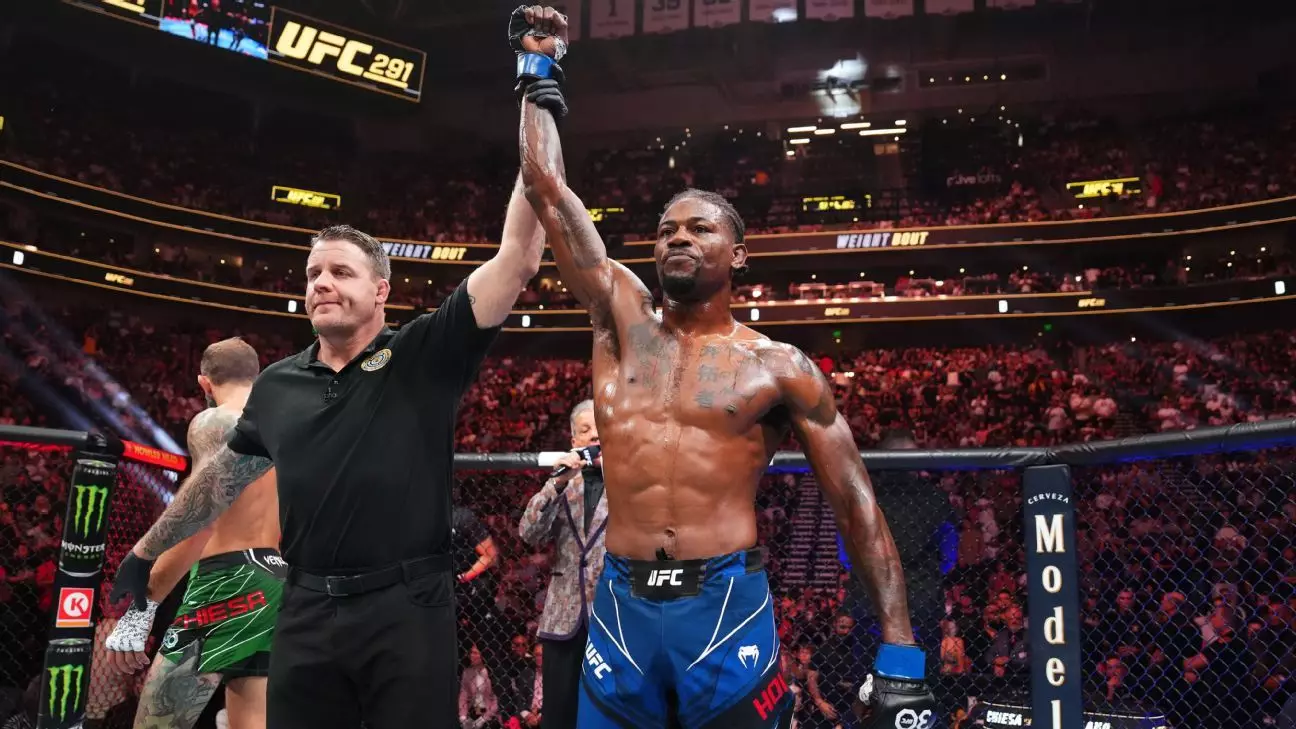As Kevin Holland gears up for his 24th UFC bout against Reinier de Ridder at UFC 311, his approach to fighting contrasts sharply with the traditional aspirations of many mixed martial artists. Holland, who has been a dynamic presence in both the middleweight and welterweight divisions since his debut in 2018, has prioritized breaking records over seeking championship belts. With an impressive track record—especially in 2020 where he went undefeated in five fights—Holland is not merely a contender; he is redefining what success means in the UFC.
Holland’s unique perspective on his career trajectory is worth examining. While many fighters dream of holding the championship title as a pinnacle of their success, Holland’s ambition lies in the sheer volume of fights he intends to complete within his career. He is not just aiming to compete; he aspires to shatter Jim Miller’s longstanding record of 45 UFC fights. At just 32 years old, Holland’s ambitious goal of potentially reaching this mark by 37 is rooted in his desire to maintain an aggressive fight schedule—in stark contrast to the typical fighter’s rhythm influenced heavily by title pursuits.
At the heart of Holland’s philosophy is a clear understanding of his financial motivations. He openly admits that his driving factor in fighting is not the quest for titles but rather the financial benefits that competing brings. “I fight for my financial lifestyle,” he asserts, directly contrasting the common narrative that championship titles are the ultimate goal. This attitude stems from his conversations with other fighters, some of whom are champions yet earn marginally more than Holland, who competes frequently. His pragmatic approach encourages a rethinking of what defines success in the UFC landscape.
Holland’s keen insight into the politics associated with championship bouts also informs his decision-making. He acknowledges that championship status often brings with it a plethora of obligations and restrictions that could impede his fighting frequency. “There are too many politics that come with being a world champion,” he states. The implications of navigating those politics not only influence when he fights but could also impact his earning potential in ways that do not align with his goals. Instead of chasing a belt, he favors pursuing multiple fight opportunities that equate to a more lucrative financial outcome.
As UFC 311 approaches, Holland expresses a desire to emerge from the fight unscathed, laying the groundwork for an aggressive fight schedule moving forward. His goal of participating in six—or possibly even seven—fights this year underscores his dedication to his record-chasing aim. This tenacity speaks volumes about his character and sets an intriguing precedent for upcoming fighters who might consider a similar path.
In a sport where potential champions often receive the lion’s share of attention, Kevin Holland is carving out a new narrative. His commitment to building a legacy defined by frequency rather than titles offers a refreshing perspective on what it means to be a successful fighter in today’s landscape. With a balanced focus on health, financial independence, and quantity of experience, Holland is undeniably establishing a unique and commendable blueprint for current and future UFC contenders.


Leave a Reply